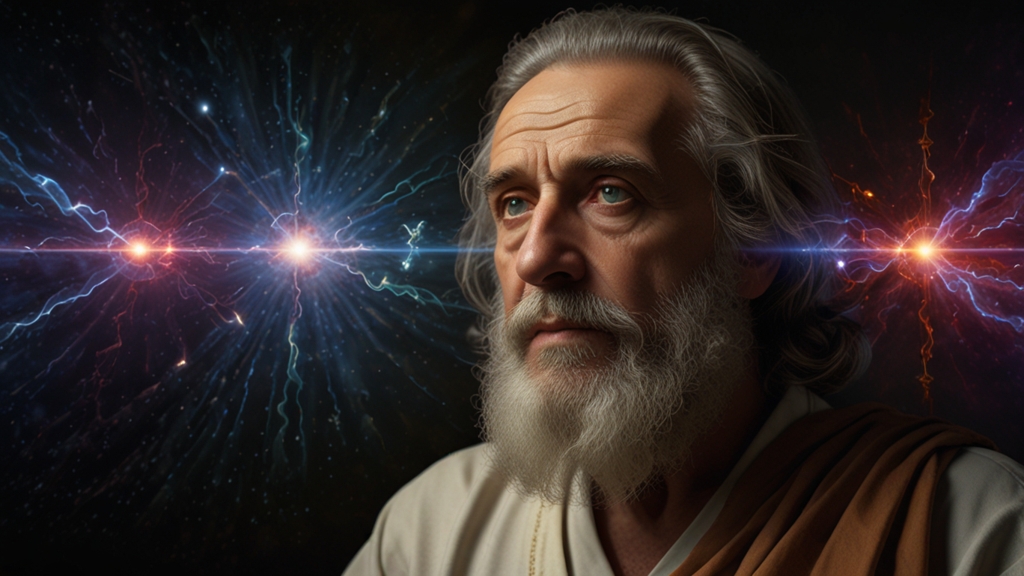From Plato to Quantum Physics: The Evolution of Metaphysical Thought
Metaphysics, the branch of philosophy that explores the fundamental nature of reality, has experienced a profound evolution from ancient times to the present day. From the abstract ponderings of Greek philosophers to the complex theories of modern quantum physics, metaphysical thought has continually sought to question and understand the nature of existence, causality, and the universe. This article traces the evolution of metaphysical thought, highlighting key milestones and figures that have shaped our understanding of reality.
The Foundations: Plato and Aristotle
The journey of metaphysical thought arguably begins with the ancient Greeks, particularly Plato and Aristotle. Plato, in his work "The Republic," introduced the concept of ideal forms — immutable and perfect entities that exist in a realm beyond the physical world. According to Plato, the material world is simply a shadow of this higher reality. His allegory of the cave vividly illustrates his belief in a reality beyond sensory experience.
"The objects which are seen are not real, but shadows of real objects." — Plato, The Republic
Aristotle, a student of Plato, took a different approach. He sought to ground metaphysics in empirical observation and the notion of substance. In his work "Metaphysics," Aristotle introduced the idea of "being qua being," or the study of being in its most general sense. He distinguished between potentiality and actuality, exploring how entities change and manifest their inherent potential.
Medieval and Renaissance Metaphysics
The medieval period saw the synthesis of Aristotelian metaphysics with Christian theology, most notably in the writings of Thomas Aquinas. Aquinas extended Aristotle's ideas, integrating them with the doctrine of creation and the existence of God as the necessary being who grounds all existence. His work laid the foundation for Scholastic metaphysics, a dominant framework throughout the Middle Ages.
The Renaissance reignited interest in Platonic and Aristotelian ideas, but it also welcomed new perspectives. The revival of Neoplatonism and the emergence of rationalist thinkers like Descartes further expanded metaphysical inquiries. Descartes' famous dictum "Cogito, ergo sum" ("I think, therefore I am") anchored existence in the certainty of self-awareness, shifting the focus towards the subjectivity of human experience.
The Scientific Revolution and Modern Metaphysics
The Scientific Revolution profoundly impacted metaphysical thought. As empirical science began to explain natural phenomena in terms of laws and mechanisms, philosophers like Kant re-evaluated metaphysics. Immanuel Kant's "Critique of Pure Reason" argued that while humans can understand the structures of experience, the "thing-in-itself" (noumenon) remains inaccessible. This critical turn brought a new humility to metaphysical speculation, emphasizing the limits of human knowledge.
In the 19th and early 20th centuries, metaphysics grappled with new challenges posed by advances in science and technology. The advent of Darwinian evolution, Einstein's theory of relativity, and the uncertainties of quantum mechanics questioned the stability and determinacy of reality. Philosophers like Alfred North Whitehead and Martin Heidegger explored these implications, proposing more process-oriented and existential frameworks.
Quantum Physics and Contemporary Metaphysical Thought
Quantum physics has revolutionized our understanding of reality, with implications that challenge classical metaphysical assumptions. The indeterminacy principle, wave-particle duality, and entanglement suggest that at a fundamental level, reality is probabilistic and interconnected in ways that defy traditional logic. This has sparked renewed interest in metaphysics, blending philosophy with cutting-edge science to explore questions of existence and causality.
"Anyone who is not shocked by quantum theory has not understood it." — Niels Bohr
Philosophers and scientists are now collaborating to address the complex questions raised by quantum mechanics, such as the nature of consciousness, the role of the observer, and the fabric of spacetime. The intersection of metaphysics and science is creating a rich dialogue that continues to push the boundaries of our understanding.
Conclusion
From the ideal forms of Plato to the paradoxes of quantum physics, metaphysical thought has continually evolved in response to new insights and discoveries. Each era has built upon the foundations laid by previous thinkers, weaving a complex tapestry of ideas that seek to unravel the mysteries of existence. As we move forward, the interplay between philosophy and science promises to deepen our understanding of reality, ensuring that metaphysical inquiry remains a vital and dynamic field.





